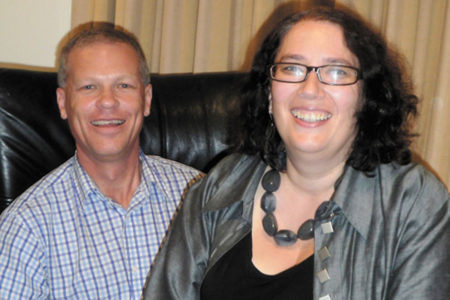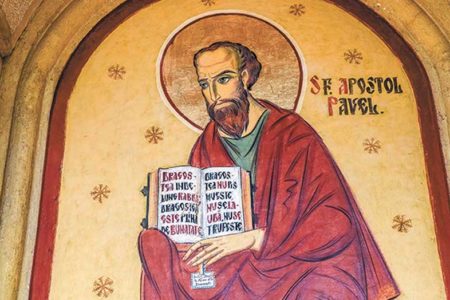Suffering and death are difficult subjects to talk about in Australian culture, particularly western culture.
I recently spent time with someone who was weeks away from death and asked them how they felt about dying. They said I was the first person to ask them this question.
While sex may no longer be a taboo topic within the context of popular culture, death and suffering certainly are.
The silence around suffering and death is fed by fear and the consistent messaging from social media and advertising that insists we should be happy, pain free and living our “best lives” – that is, consuming and achieving.
When we are not, when suffering takes our breath away and we are not able to be “productive” or “successful”, it can be compounded by guilt in that we have failed at living.
The common language of “battling” cancer or losing the “fight” supports this way of thinking and re-inscribes responsibility on to a person who is actually just ill. Such people are not losers in a battle. Instead, in their very bodies they defy the narratives of our culture and testify to the truth that we would often rather not face: suffering and death are part of life and will come to all of us.
When people are forced to face suffering, the common expectation is to medicate or simply get over it. If a person’s suffering won’t conform to these expectations and persists, platitudes of the greeting card variety are often deployed. “What doesn’t kill you makes you stronger” or “every cloud has a silver lining”. Such sentiments, which may be offered in genuine sympathy, are greeting card versions of folk Christianity that have little to do with the God of Jesus Christ.
Furthermore, such views (again) imply those who continue to suffer, or who cannot see the good in their suffering, have somehow failed, or have been unfaithful.
Our inability to sit with the real – the realities of our own suffering and the reality of others’ suffering – does so much damage in already profoundly difficult situations. Those journeying with ongoing mental health issues, or their loved ones, will perhaps know this better than any others.
While our culture seeks to deny suffering by medicating or placating it away, the way of Christ has something rather different to say. It is not easy and it is not popular. The strange reality of Christian conviction is that the naked Divine enters the very abyss of our suffering and dying in Jesus and does something from within this vulnerable, awful space.
The reality that Jesus endured a state-sanctioned execution was a terrifying embarrassment for many of his first followers. Their hero and hope had been killed in the most shameful and agonising way by the government. Paul responds, not by downplaying the scandalous nature of Jesus’s crucifixion, but by claiming that in Jesus’s apparent weakness the nature of Divine power is revealed (1 Corinthians 1.18-31).
To take this seriously is to contemplate the shocking reality that Divine power is non-violent, Divine power is forgiving and Divine power does not lord it over others.
Instead Divine power gives of self utterly. And despite, or rather because of, this reality, this Divine “un-power” is more powerful than all our cruelty and violence and hate and fear and death and cannot be extinguished.
These claims about Jesus’s death and risen life are not simply intellectual ideas to be agreed with or dismissed. Nor are they claims that relate only to life beyond this life.
Paul is suggesting something far more provocative: that something is able to happen in our own living when we let this Divine One near us in our suffering. For people who follow Christ Jesus – the one who has been to hell and back – when we allow this One close to us in the midst of our suffering, Spirit can give birth to strange, risen life within us and among us (eg 2 Cor. 1.3-7; Rom 5.1-5). This might come in the shape of fresh wisdom, or surprising peace or wide-open compassion.
These are not qualities achieved through an effort of willpower or positive thinking. They are gifts woven together by the Divine in the vulnerable space that is made available when our egos and certainties have been smashed by life’s circumstances.
In my experience, it is about daring to sit in the dark and be with the pain and questions, not numbing or avoiding them, but naming them and letting the Divine sit with me in these frightening places. It’s then – and only then – that She is able to birth grace.
As the Franciscan Priest and spiritual writer Richard Rohr says: “We must learn to stay with the pain of life, without answers, without conclusions, and some days without meaning. That is the path, the perilous dark path of true prayer.”
No one else can do this for us. The journey for each of us will be different. However, followers of Christ can trust the Divine who we know and name is the One who knows our pain and suffering from the inside, and who will not let us go, and who will accompany us each step of the way.
At the recent Synod Meeting I spoke on the floor about a Christian theology of suffering. This was because we were being asked, as a Synod, to discern our response to the Victorian legislation that has made allowable, within limited circumstances, Voluntary Assisted Dying.
Ultimately the Synod discerned there was a range of faithful Christian responses to this legislation. While this may be true, it is crucial we hold fast to our theology of suffering, both in discernment about our own living and dying, and as we journey with others in their discernment about their living and dying.
In a culture that is terrified of suffering and that seeks to alleviate or ignore it at all costs, in a culture that values productivity and success above all else, our theology of suffering is a radical and disruptive word of hope that is desperately needed.
We are not failures when we suffer. We are still of value when we are not productive. God is not on the side of the successful or the positive thinkers.
The Divine we give our hearts to enters into the horror of our suffering in Christ Jesus in vulnerable compassion and is with us in our pain, and if we let Her close, she who knows us by name, will labour with us, and within in us, to birth unexpected gracious life.





